
Introduction
Last week I watched “Deadpool 2” and again was really amazed by it. Even though on the surface it seems like a shallow fantasy movie, in reality it is not. To be honest, I used to be a big fan of such meaningless action superhero movies, but recently I don’t feel satisfied after watching them. I know that one of the major points of such movies is to experience the enormous amount of action, explosions, fights and special effects, but I feel like the producers left the good scripts and character interpretations behind.
Even though “Deadpool” and “Deadpool 2” are maybe one of the most ‘unrealistic movies’ with maybe the most absurd main plots, even for the “Marvel” universe, after I watched them I felt like it was a real thing (not in a literal sense of course). Why? Let’s find the answer to that question and more.
Which was/were the last movie/s you watched and really enjoyed? Did the main characters justified your expectations? What did you like most about them and why?
These are questions which in retrospect we ask ourselves right after a good or a bad movie experience. Normally, no matter the movie genre, we as viewers cannot remain neutral while watching and hoping for something to happen, or not to happen to our favorite character.
We have all experienced that feeling when the hero in the sow finally brings justice to the villain, especially if this happened in the last moment. But have you experienced a sympathy or affection towards someone who should be considered ‘a negative character’ in the show? Have you caught yourself wanting him to defeat the ‘hero’? Yes? Why? What about morality? Does that make you a bad person? Is there something wrong with you? Let’s find the answers below.
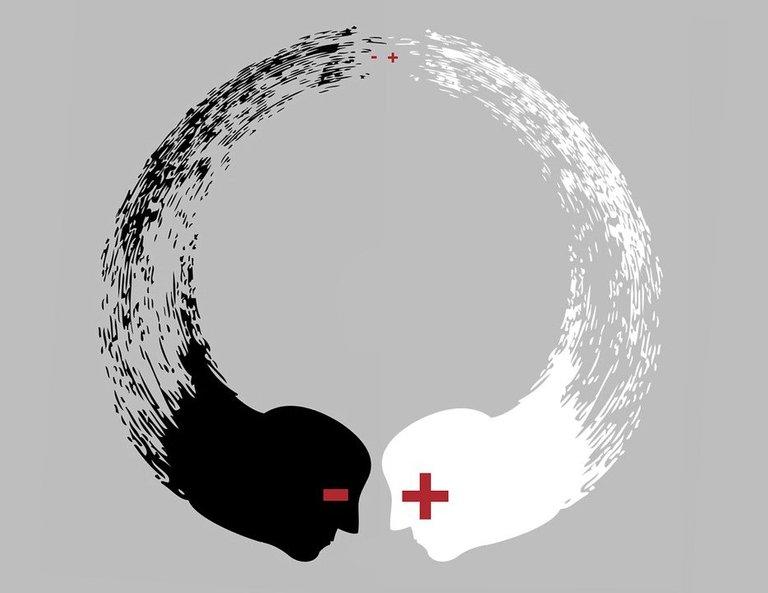
The ‘Hero’ vs ‘Anti-hero’
So far, the film industry has taught us that the hero/heroine should be someone who is a symbol of idealized personality and physiology. One who delivers salvation, hope and is able to overcome hardship by all means. In recent years we observe the trend in modern TV shows to switch the focus from the ‘classic Good guy vs. Bad guy’ scenario into a morally ambiguous gray area that has left viewers somehow addicted. A new star of the story emerges: ‘the Anti-hero’: a character that is ‘psychologically damaged’ in some way, someone who blurs the line between good and evil, someone who achieves a justified cause in their own way, often questioning morality.
Morally ambiguous characters or ‘anti-heroes’ are by definition a central figure in a story or tv show who lacks conventional heroic attributes. Unlike the ‘hero’, the ‘anti-hero’ rarely falls into situations which please others around him. While the ‘hero’ solves the problems in a way lead by his high sense of morality, the ‘anti-hero’ is not only not afraid, but he is seeking conflict and struggle rather that comfort and certainty. His sense of self-actualization or justice is achieved through violence. The codified laws that apply to the rest of society like “do not murder” do not apply to him. Even implicit laws like “do not manipulate others” are a crucial part of his personality.
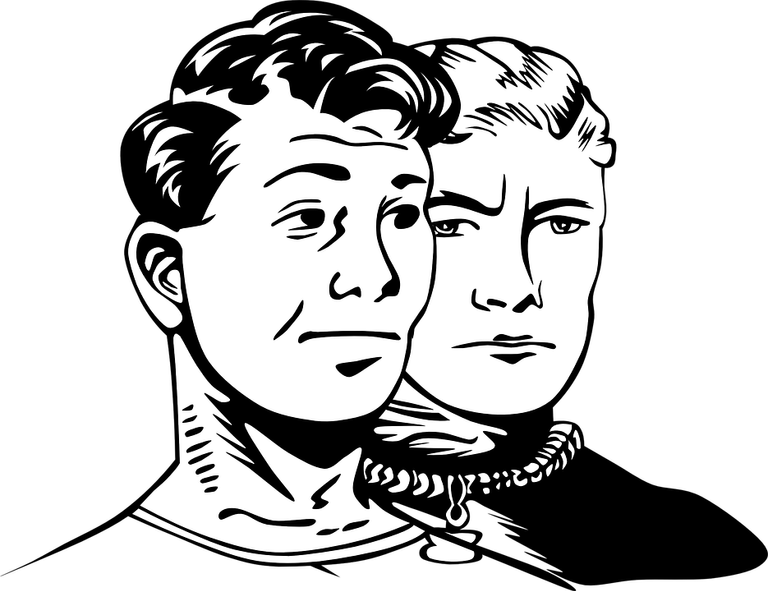
The ‘Anti-hero’ vs ‘Villain’
While the ‘anti-hero’ gradually differs from the ‘hero’, it is important to know that it’s not a synonym for the ‘villain’. While the ‘anti-hero’ lacks conventional heroic attributes like optimism, honesty, strength, morality, and virtue, instead they achieve their goal through cynicism, deceit, frailty, insecurity and vice. So what’s the difference between a classic ‘anti-hero’ and a ‘villain’?
The intention.
While the ‘villain’ is a protagonist whose evil actions or motives are central to his character, the ‘anti-hero’ is not necessarily evil. Both may use the same tools, but the intention and the final result are different. You can see a lot of examples which can back up this argument.
Think about Dexter Morgan (one of my most favourite TV series), who is a serial killer, who murders his victims in so many unpleasant ways. Being aware of his dysfunction, he only targets other killers who escape justice. What about Walter White? A chemistry teacher who starts to cook methamphetamines in order to provide for his family and later becomes a drug king-pin? Deadpool? Tony Soprano? Even James Bond. The list goes on.
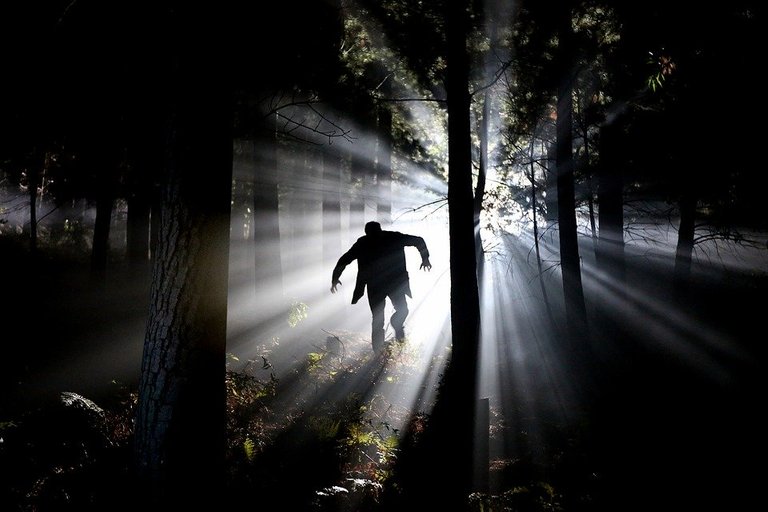
The Dark Triad Traits in Anti-heroes
Okay guys, after all this article is about psychology and as I mentioned a couple posts before, I am currently really into personality psychology, more specific researching narcissism, self-monitoring, self-esteem etc. I would like to try to apply what I have learned about these constructs while writing this article. Bear with me and I hope you will find your explanation to the questions asked in the beginning.
Recently I wrote an article fundamentally explaining “The Dark Triad” of personality psychology. If you missed it, I suggest you read it, in order for this one to make more sense to you.
Okay. If you think about it, if we have to create a general psychological portrait of the ‘anti-hero’, I cannot find a more suitable one than ‘The Dark Triad’. Think about any example of an ‘anti-hero’ while reading the below boil down of the psychological elements I differentiate in order to make more sense to you.
Narcissism
Narcissism lies in people’s sense of entitlement or superiority to others. Narcissists do not just feel good about themselves—they feel that they are inherently better and more deserving of the respect and admiration of those around them. Different types of narcissist achieve these goals through different social and intrapersonal strategies.
As previously discussed there are two types of narcissism recognized as a personality trait: grandiose narcissism and vulnerable or fragile narcissism. Grandiose narcissists are extraverts who overtly express their dominance and boost their ego and self-esteem by constantly seeking admiration from others (Morf & Rhodеwalt, 2001; Sеdikidеs & Grеgg, 2001; Fostеr & Trimm, 2008).
I would say that most of the ‘anti-heroes’ which come to my mind are grandiose narcissists.
On the other hand, vulnerable narcissists tend to be more introverted, shy and sensitive to criticism, but they still are able to achieve their narcissistic goals through manipulation and deception (Miller et al., 2010; Zeigler-Hill, Clark, & Pickard, 2008).
Maybe the best example which comes to my mind here is Dexter Morgan.
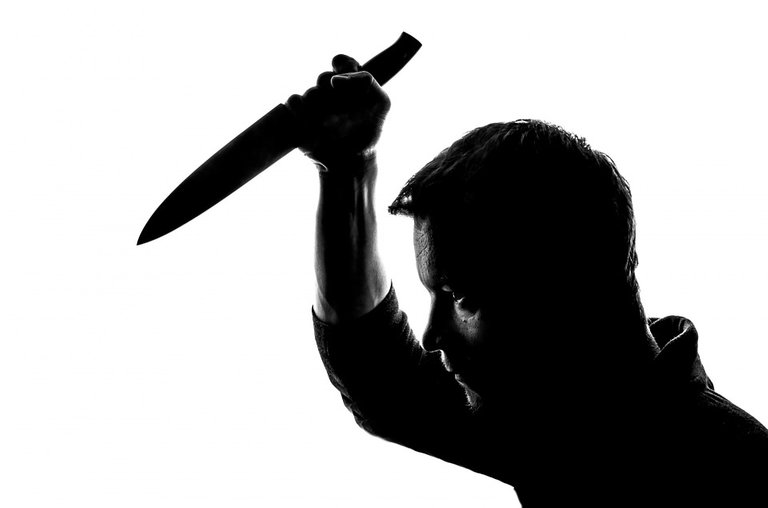
Psychopathy
The construct of psychopathy is described as a combination of antisocial behaviors and emotions, including shallow affect, low remorse, low fear, low empathy, egocentrism, exploitativeness, manipulativeness, impulsivity, aggression, and criminality (Cleckley, 1964; Hare, 1993). Similar to narcissism, psychopathy has been extensively studied by both clinical and personality psychologists. We will discuss this in another article.
Without falling into deep еxplanations, gеnеrally thеrе arе two factors of psychopathy - primary or instrumеntal psychopathy and is sеcondary or hostilе/rеactivе psychopathy. Primary psychopathy includеs thе shallow affеct, low еmpathy, and intеrpеrsonal coldnеss facеts of psychopathy. This typе of psychopaths arе oftеn considеrеd as “еmotionally stablе” psychopaths. Sеcondary psychopathy factor is composеd of thе socially manipulativе and dеviant facеts of psychopathy and has bееn variously rеfеrrеd to as aggrеssivе, impulsivе, and nеurotic psychopathy (sее Falkеnbach, Poythrеss, Falki, & Manchak, 2007; Hicks, Markon, Patrick, Kruеgеr, & Nеwman, 2004; Lykkеn, 2006)
Empirical studies suggest that psychopathy negatively correlates with agreeableness, conscientiousness, and neuroticism. Psychopaths also score higher than nonpsychopaths on extraversion and openness (Jakobwitz & Egan, 2006; Paulhus & Williams, 2002). It‘s interesting to note that psychopathy correlates positively with sexual assault, intimate partner violence, infidelity, and mate-poaching (Brown & Forth, 1997; Jonason et al., 2010b).
Regarding TV shows, we might conclude that there are two types of psychopaths – anti-hero and villain. As we explained already, the difference between the two is the intention and the final result. A good example for psychopath villain, which everybody knows is Hannibal Lecter. In comparison to Dexter Morgan, which I mentioned earlier and is a perfect example for anti-hero. Maybe here we should point another key point, which would help us differentiate the psychopath villain from the psychopath anti-hero.
It is true that Dexter, similar to Hannibal kills other people, due to his dysfunctional childhood. But the key difference, which allows the viewer to justify the first and judge the second is again the intention and the final result. Dexter kills people like Hannibal, while Hannibal kills in order to satisfy his need to do so.
Machiavellianism
Machiavellianism is the third trait, related to “The Dark Triad”. It is characterized by a manipulative, self-serving social strategy with three main components: cynicism, manipulativeness, and a view that the ends justify the means (Gunnthorsdottir, McCabe, & Smith, 2002).
Empirical data suggests that there are two types of Machiavellianistic (not sure if that’s the proper term) people: “low Machs” and “high Machs” (Christie & Geis, 1970). In lab conditions, high Machs tend to use exploitative strategies (e.g., Harrell, 1980; Vecchio & Sussmann, 1991). In trust games, they follow rational strategies based on their self-interest. High Machs tend to be more competitive and winning at all costs (Ryckman, Thornton, & Butler, 1994), while disregarding their community and family (McHoskey, 1999).
Personally for me the concept of Machiavellianism is somehow similar to narcissism and psychopathy taken together. What we already said about narcissistic and psychopathic behaviour applies to Machiavellianism as well.
Why do we admire the anti-heroes?
With such a thin line between the two protagonists why do we admire the anti-hero and hate the villain? There are several proposals which come to my mind. If you think of more, please discuss.
Affective disposition theory
Simply said according to this theory, our enjoyment increases when liked characters experience positive outcomes and/or when disliked characters experience negative ones and vice versa. Once we like characters, we are inclined to empathize with their pain and struggles; we feel for them. The greater the liking (i.e., the more positive the affective disposition), the stronger the empathic response. While this theory does not predict our emotional responses, it helps explain why we seem to always have such unwavering opinions when watching our favorite shows.
But what makes us like characters which are classified as “Anti-heroes”?
When I said earlier in this article that “Deadpool” felt somehow more realistic than other Marvel movies, I meant that the character Deadpool was more close to human than superhero, despite his extraordinary abilities (even for a superhero). But why?
In their very core “anti-heroes” are damaged. They're damaged like we are.
Maybe the thing which attracts us so much to the anti-hero is the relatability. In reality there is no such thing as a perfect person. Why would there be one on screen?
Empathy is one of the strongest emotions we have and being able to understand a character, even when he is murdering innocents and betraying loved ones, has a very profound effect.

They're strong, despite their demons.
Life is hard for most of us. Even the ones who have their materialistic needs covered, they still fight the same demons like we all do. When we see others overcome the same emotions and hardships like ours, this gives us hope. Like the hero, the anti-hero is also strong, even if he doesn't have the same moral grounding. He is brave and determined. He does whatever it takes to achieve his goal, even if it has to be an immoral act. He breaks the rules and questions our virtues.
I’ve said it before and I will say it again: their intentions are admirable.
While their actions may be questionable, their motives are always pure. “Anti-heroes” resemble ourselves, reminding us not only of the ambiguous morality of existence but also the possibility of redemptive change and transcendence.

Finally, if we have to say why we admire the ‘anti-hero’characters so much is because
We experience a catharsis
In psychology catharsis is the process of releasing emotions which build up and create pressure if not vented. According to psychoanalytic theory, this emotional release is linked to a need to relieve unconscious conflicts.
Catharsis involvеs both a powеrful еmotional componеnt in which strong еmotions arе fеlt and еxprеssеd, as wеll as a cognitivе componеnt in which thе individual gains nеw insights. Thе purposе of such catharsis is to bring about somе form of positivе changе in thе individual's lifе.
Conclusion
Hopefully this article was interesting and enjoyable to you, as it was to me. What do you think about this topic? Do you agree or disagree? Would you like to add something, or to share your point of view? Please let me know in the comment section.
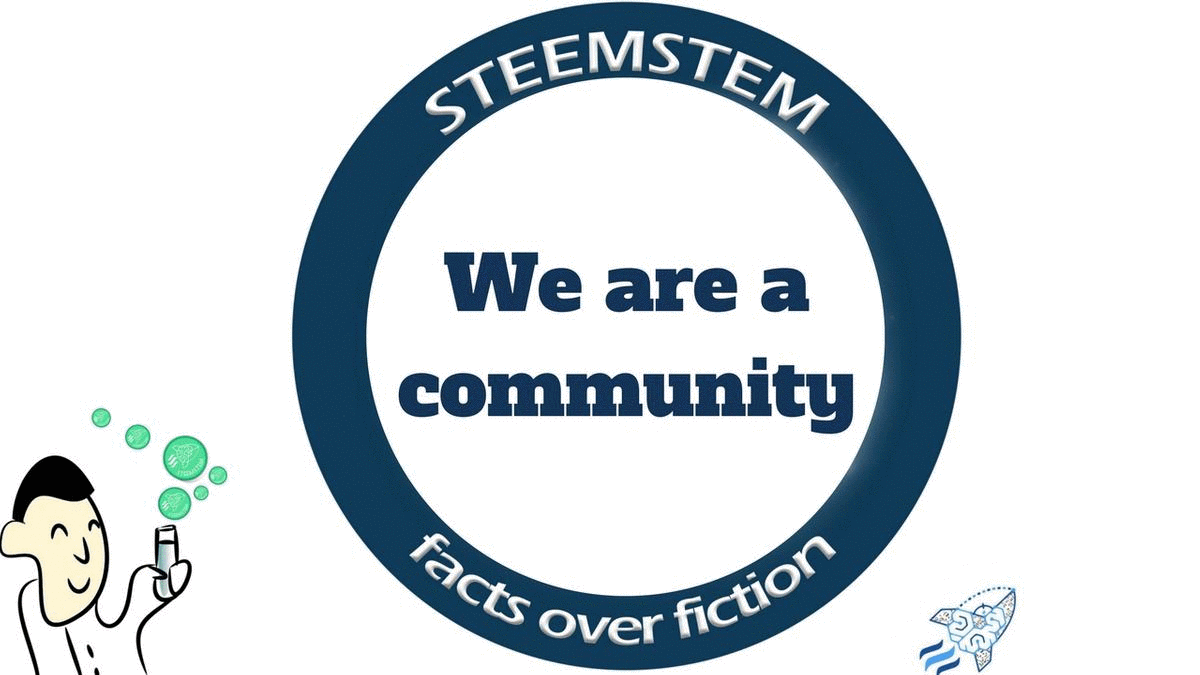
Pictures: PixaBay
Sources:
Cleckley, H. M. (1964). The mask of sanity (4th ed.). St. Louis, MO: Mosby
Christie, R., & Geis, F. L. (1970). Studies in Machiavellianism. New York, NY: Academic Press
Hare, R. D. (1993). Without conscience: The disturbing world of the psychopaths among us. New York, NY: Pocket Books.
Jakobwitz, S., & Egan, V. (2006). The dark triad and normal personality traits. Personality and Individual Differences, 40, 331–339. doi:10.1016/ j.paid.2005.07.006
Paulhus, D. L. (2001). Normal narcissism: Two minimalist accounts. Psychological Inquiry, 12, 228 –230.
Paulhus, D. L., & Williams, K. M. (2002). The dark triad of personality: Narcissism, Machiavellianism, and psychopathy.
Journal of Research in Personality, 36, 556 –563. doi:10.1016/S0092-6566(02)00505-6
A fantastic read, as expected!
Thank you for all the time and effort you put in your articles; compelling, fascinating stuff; cheers 🥂
Thank you for your support !
Tony Montana. Say goodnight to the bad guy.
Don Corleone. I’m gonna make you an offer you can’t refuse.
Frank Hill. Fuck you pay me.
Carlito Brigante. Jive-ass chain snatchin maricon mothafuckas.
Han Solo. I expect to be well paid. I’m in it for the money.
Thanks for the list :)
A great one, by the way !
Do you have a favourite anti-hero?
I probably have too many on my list to pick one ... I was also thinking of Tyler Durden, almost any character from Snatch or Pulp Fiction. Tommy Shelby (peaky blinders). Etc etc.
How about you?
Great additions. My favourite ones are Dexter Morgan, Benedict Cumberbatch's Sherlock Holmes, Deadpool :)
As far as I know, the concept of catharsis is not considered a valid psychological theory anymore. The attempts to back it up with solid research have failed. Which is one among many reasons why psychoanalysis (at least in the terms of Freud) is utter nonsense.
Besides that, I don't think motives matter so much in the end. The victims of the the anti-hero or the villain are end up dead anyway - the reason for their fate is irrelevant, since the result is still the same. The term anti-hero is just a glorifying way to justify another killing spree.
I don't mind that. But it's not in any way moral superior.
Given the case, of course, one can determine any kind of morality at all.
Hello @egotheist and thanks for reading.
I will research this and answer you later.
I would not argue here with you, instead I would say that you have to read latest research from 2015-2017 on psychoanalysis. There are concepts which are backed up scientifically. I could provide studies if you like.
Motive is what matters the most. No doubt here.
Reading your comment I feel that you are not a supporter of the "Anti-hero admiration theory". Could you please tell me what you do not like about such concepts? If I am wrong, could you tell me what you do like ?
Your comments are always valuable and welcome here. Thanks for your time again :)
Yeah, I would really like to read these. Either link them here or send them to me on Discord :)
Granted, it's been a few years since I dug into psychoanalysis, so I'm not familiar with the current state of research.
I'm not against the theory as a theory but as a moral justification for certain actions. I can understand, why people are attracted to such kind of behavior - because most people don't follow a strict moral code but a flexible set of rules, which can be bound depending on the circumstances. Anti-heroes make us aware of this flexibility.
Morality depends so much on its context, but the resulting actions of anti-heroes and villains are often the same - which leads to the same outcome, only justified by some kind of arbitrary flexible morality. I would not agree with you, that their intentions are admirable - or at least, they don't matter at all.
For example:
The NGO-crusade vs. GMOs is (probably) driven by good intentions - but its actions and results are terrible. I would not admire this. I despise it. Or to put it more peotically:
Thank you for the clarification. Although I must say that you misunderstood me
I don't say that their intentions should be admired. It's just what differs them from the villain protagonist.
People overall admire the anti-heroes, because of the feeling of empathy.
While heroes and villains are the extreme examples of good and evil, the anti-hero remains somewhere in between, shifting between right and wrong. This is what makes them related to us as viewers, and in some sense admired.
I will provide the studies later !
Well, you wrote:
This seemed pretty clear to me ;)
This makes more sense in my opinion. It's mainly based on the potential of identification between the ordinary viewer and the displayed actions of the anti-hero. As you said, they are able to relate.
But I still remain with my argument, that I don't think, that's a good idea in general. Severing the connection between actions and intentions to justify the first, can bear heavy consequences.
Thanks for pointing this out, maybe I got lost in the context. I will think about how to clear this out.
Could you give the pixabay link of each photo/image you are using? It is also always nice to credit the photo/image creators :)
Yes, I might do that. Thanks for the note.
So far I've always structured my articles this way.
Thank you. What a great topic to dig into!
Some of my thoughts on it ...
In films, theatre, literature and the performing arts in general, the creatives work with extremes and exaggerations. The stylistic means should transport what otherwise would not be obvious.
... The fascination of hero and anti-hero probably began around the campfire when people were still telling each other stories orally and had to resort to strong symbolism because of the tension. It is also quite boring and without any special effect when the storyteller just says that someone has had a long life and that feeding himself and his fellas and basically passes away one day after the other.
What we as TV viewers in the modern world do not recognize very well is when we find ourselves in a situation that should awaken the hero or the brave in us. Since we are hardly ever in danger of death. Unlike our film protagonists, who go through one or two hours of adrenaline-filled experiences.
The extremist protagonists are confronted with ethical questions much more than one itself (or so it seems; unfortunately). ... So when I look at my banal everyday life, I probably can hardly see where I come across an ethical question and instead of following my intuition and hitching up exactly where it would be important, I miss this opportunity and feel relatively insignificant.
In real life, heroism has much less to do with strong feelings and extreme situations. ... Of course, you know that - I am only thinking loud :)
It is extremely heroic, for example, to stand in front of one's class as a teacher and recite a play or bring it so sensitively that the students, who otherwise have no interest in literature, are infected by the fire of passion (like here: https://steemit.com/ifc/@youhavewings/ifc-s1-r35-catchup-entry-creative-minds). Such scenes appear in the film, but are hardly perceived as heroic in real everyday life.
Both the hero and the anti-hero and other roles in the films always describe the poles and thus serve as a means to place oneself somewhere there on the broad scale.
I also think that the comfort of a modern life and the few really life-threatening events in everyday office life want compensation because we are not exposed to dangerous predators and natural hazards. We humans seem to feel really alive in such challenging situations, which, if not from eight to five, are supposed to occur in prime time.
Others jump out of an intact aircraft or master records in ocean deep diving.
As this is the case, films are needed for symbolism and creativity. But I asked myself a thousand times: What indeed got me creative? Watching a movie or seeing a person in my real life (or even hearing of a real life event) presenting a heroic or brave act? You know my answer ... :)
Thanks for your thoughts, Erika, you truly are a gem.
Of course in real life heroism has nothing to do with what we observe in the superhero movies. But sometimes we have to experience what you mention as "extremes and exaggerations" in order to see how little or how much, depending on the perspective it has to take to be a hero.
When we self-reflect we are able to search for heroic traits within us.
Great article, quite absorbing, couldn't stop reading till the end. kudos
Thanks !
How do you feel about anti-hero characters?
Do you agree or disagree with my point of view in this article?